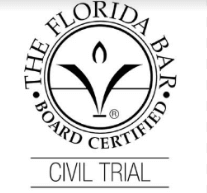Table of Contents
Even if you signed a consent form, you can still sue for medical malpractice in Florida. However, you must be able to prove that the healthcare provider acted negligently or did not meet the standard of care. Proof could include medical records and expert testimony from other healthcare professionals.
To find out if you have a viable case, contact our Florida medical malpractice attorneys. We will review the information in the consent form and determine the best steps forward.
What Is a Medical Consent Form?

A medical consent form outlines the nature of a procedure, including the risks involved. Typically, patients must sign this form before the procedure can take place. This protects both parties if something goes wrong with the procedure or unexpected complications occur. However, the benefits are often skewed toward protecting the medical facility and its workers.
Some exceptions exist that allow the patient to pursue a medical malpractice claim. This includes cases in which the healthcare provider committed gross negligence. In other words, they worked far outside of accepted standards of care.
Gross negligence also applies to cases where the healthcare provider deliberately concealed information from the patient. Examples of concealed information might include potential risks or outcomes associated with the medical procedure.
The Standard of Care in Medical Malpractice Cases
Standard of care refers to the accepted level of treatment that healthcare providers must adhere to when providing medical care. If a healthcare provider fails to meet this standard, they may be liable for any harm or injury caused.
Here are some examples of the ways healthcare providers could breach the standard of care:
- Failing to diagnose an illness correctly
- Prescribing the wrong medication
- Making a surgical error
- Delaying treatment
How Does Signing a Consent Form Affect Legal Rights?
Sometimes, a healthcare provider may ask you to sign a waiver of liability or consent form before providing medical care. These forms can limit your legal rights in the event something goes wrong. While they are legally binding documents, it is essential to remember that these waivers do not always absolve the healthcare provider from negligence.
Even if you signed a consent form, you may still be able to pursue legal action if the healthcare provider acted negligently or breached the standard of care. Our experienced attorney can review your case and determine whether this exception applies to you.
If you signed a consent form and believe your medical injuries resulted from negligence, seek legal representation as soon as possible. The sooner you get started, the easier it is to collect and preserve evidence needed to support your case.
Factors That Could Make a Medical Consent Form Unenforceable

Medical consent forms are not always enforceable in a court of law. Sometimes, the patient may have filled out the form incorrectly, or the form contains confusing and unclear language. The patient may also not have received adequate time to understand what they were signing.
A medical malpractice attorney can review the content of your consent form and determine whether it is enforceable. You may still have a legitimate medical malpractice claim even if the form is enforceable.
Note that contracts cannot force you to sign away your civil rights. Consequently, while consent forms may protect against expected medical complications or even some common errors, they do not protect medical facilities or healthcare workers against the consequences of their gross negligence.
How to File a Medical Malpractice Claim
Filing a claim can feel challenging and even intimidating. However, with the proper support and guidance, you can pursue justice for harm or injury suffered due to subpar medical treatment. Here are some steps you should take if you wish to file a claim:
- Consult with a Florida medical malpractice lawyer. Choose an experienced attorney who has worked on cases like yours.
- Gather evidence and records related to the incident. Your attorney may request documentation you have already collected and will gather additional evidence on their own.
- Calculate any damages you have incurred as a result of the malpractice. After reviewing the evidence and reconstructing the case, your attorney can make a professional estimate of how much you might receive as compensation.
- File your claim promptly and follow all relevant laws. Florida has a statute of limitations of two years, so it’s important to file soon.
- Negotiate an appropriate settlement or take your case to trial if necessary. If the medical facility, healthcare provider, or insurance company won’t agree to a fair settlement, your attorney may take the case to court.
Get a Free Case Review From Kogan & DiSalvo

If you suffered harm caused by negligent medical practices in Florida, our experienced attorney can help. At Kogan & DiSalvo, we understand the complexities of medical malpractice law and will work hard to ensure that justice is served.
We provide free consultations so that you can get a risk-free review of your case. We work closely with you to explore your options before making any decisions. Contact us today to learn how we can help you with your medical malpractice case.








